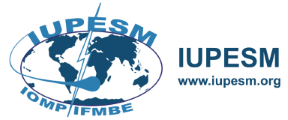
Organizers: Kang Ping Lin & Magdalena Stoeva
Session Moderators: Kang Ping Lin & Ratko Magjarević
Discussion Moderator: Magdalena Stoeva
To check the corresponding time in your country please check this link:
https://greenwichmeantime.com/time-gadgets/time-zone-converter/
Speakers
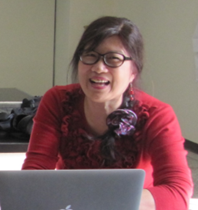
Mei-Hung Chiu
ISC Governing Board member
Professor Emerita
Graduate Institute of Science Education
National Taiwan Normal University
International Science Council
Abstract
The International Science Council (ISC) is a leading global organization dedicated to catalyzing and convening scientific expertise, providing advice, and influencing issues of significant concern to both science and society. The ISC strives to be a powerful and credible global voice, respected in both public and policy domains, as well as within the scientific community. Its core vision is to recognize science as a global public good. Central to this vision is the belief that scientific knowledge, data, and expertise must be universally accessible, with their benefits shared by all.
In its Action Plan for 2022-2024, the ISC emphasizes key areas such as Global Sustainability, Converging Science and Technology in a Digital Era, Science in Policy and Public Discourse, Evolving Practices in Science and Science Systems, and Freedom and Responsibility in Science. As a governing board member, I will present the ISC’s mission, vision, and 2022-2024 action plans during my talk, while also sharing recent publications and initiatives that highlight our ongoing work.
Short CV
Mei-Hung Chiu is a Professor Emerita of the Graduate Institute of Science Education of the National Taiwan Normal University. Her research areas include (1) eliciting students’ conceptional construction and conceptual change in science education, (2) promoting model-based and modeling-based instruction and developing students’ modeling competence, (3) investigating the effectiveness of the use of counter-intuitive scenarios via facial recognition system in science learning, and (4) applying augmented reality for learning structures of organic compounds. She was a recipient of the Distinguished Contribution to Chemical Education Award from the Federation of Asian Chemical Societies (FACS) in 2009, the Distinguished Contribution to Science Education Award from East-Asian Science Education Association (EASE) in 2016, the Distinguished Woman in Chemistry or Chemical Engineering from IUPAC in 2021, and Distinguished Contribution to Chemistry Education Award (lifetime award) from IUPAC in 2024.
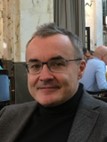
Dr. Peter Knoll
International Atomic Energy Agency (IAEA)
IAEA activities in nuclear medicine medical physics to support the member states.
Short CV
PD Dr. Peter Knoll is a medical physicist currently serving as a Technical Officer in the Section of Dosimetry and Medical Radiation Physics at the International Atomic Energy Agency (IAEA) since 2020. In this role, he advises member states on efficient Nuclear Medicine setups, operation enhancements, technology integration, and ensuring compliance for sustainability. From 1994 to 2000, he worked as a Medical Physicist at Wilhelminenspital and Kaiserin Elisabeth Spital, Institut für Nuklearmedizin in Vienna, Austria, where he co-led nuclear medicine research, developed new techniques, and mentored staff to enhance team skills and patient care.
Dr. Knoll holds a BSc in Business Informatics from Fernuniversitaet Hagen, Germany, which he completed in 2015, integrating business management and information technology for multidisciplinary applications. In 2006, he was awarded the venia docendi for his exceptional contributions to medical physics. He earned his Ph.D. in Computational Physics from the Medical University of Vienna, Austria, in 2000, where he developed three iterative SPECT reconstruction algorithms and graduated summa cum laude. Additionally, he completed a post-doctoral course in Medical Physics at the same institution from 1994 to 1998. He began his academic journey with an MSc in Physics from the University of Vienna, Austria, conducting research in Solid State Physics at the Weizmann Institute of Science, Israel, supported by an FWF scholarship.
Dr. Knoll spearheaded the ideation and development of the large-scale FP7 SaveMe project, pioneering a modular nanosystems platform for advanced cancer management. He also managed and led the scientific and editorial team for the impactful IAEA publication “Dosimetry for Radiopharmaceutical Therapies,” advancing the understanding of medical radiation physics worldwid
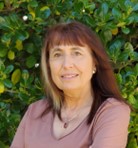
Virginia Laura BALLARIN
IFMBE AC member
CORAL Vice-President
National University of Mar del Plata
Professor
Regional Solutions: Enhancing Healthcare through Technology in Latin America
Abstract
Healthcare technology in Latin America faces significant challenges related to unequal access, limited infrastructure, and a lack of trained personnel. Digital and economic disparities, along with fragmented healthcare systems, compromise the effective adoption of advanced technologies. To overcome these obstacles, it’s essential to invest in infrastructure, promote education and training, and foster regional collaboration. Cooperation between countries and the development of innovative policies are key to improving the quality and efficiency of healthcare services in the region.
Short CV
Virginia Laura Ballarin is a Professor and Director of the Health Informatics Group at the Faculty of Engineering and the Faculty of Medicine at FASTA University.
She is also a Professor at the National University of Mar del Plata (UNMDP) and was the Director of the Image Processing Laboratory (PILab) at the Institute of Scientific and Technological Research in Electronics from 1989 to 2023.
She has supervised over 20 postgraduate and 25 undergraduate theses in Biomedical Image Processing and authored more than 100 articles and over 180 conference papers.
She was Editor of the Argentine Journal of Bioengineering from 2015 to 2023 and created and continues to direct the Doctoral Program in Bioengineering at UNMDP.
She served as President of the Argentine Society of Bioengineering (2013-2015), President of the Argentine Chapter of EMBS IEEE (2016-2018), and Chair of the Committee of Women in MBE of the IFMBE (2018-2022).
Currently, she is President-Elect of CORAL and a member of the Administrative Council of IFMBE (2022-2028).
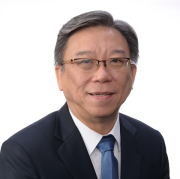
James Goh
Department of Biomedical Engineering, National University of Singapore
Emeritus Professor
Technologies Transforming Biomedical Engineering Education
Abstract
MedTech landscape is changing rapidly due to multiple factors, ie continuing advances in our understanding of biomedical sciences and the development of new innovative technologies for effective and precise diagnosis, treatment and monitoring. With advances in technology, in particular the development wearables, data analytics, IoT, artificial intelligence and coupled with industry 4.0, the future of medicine would be very different. Therefore, while it is important for BME undergraduate degree program to produce engineers with a strong foundation in the relevant engineering, sciences and technology, it is perhaps as important to emphasize innovation, enterprise and leadership in the BME curriculum. Future BME program will need to have a high degree of flexibility that can provide a wide diversity of educational experiences. By providing graduates with a combination of broad-based fundamentals and specialized knowledge, the BME program strives to graduate versatile biomedical engineers that would be best positioned to lead and be an integral part of the BME industries. This can be facilitated by utilizing effective an efficient pedagogical approach in our teaching. BME program needs to address and respond to the rapid changes in technologies and ensuring our graduate remain relevant to the industry. Therefore, students need skills to understand complex issues of biomedicine and to develop and implement of advanced technological applications to these problems. BME program should provide opportunity for students to develop their marketability to employers, ie through internships, overseas exchange programs, and involvement in leadership-type activities. BME curriculum must be designed and developed with biomedical innovation in mind, that ensures relevance to the industry.
Short CV
Prof James GOH obtained his BSc (1st Class Honors) in Mechanical Engineering (1978) as well as PhD in Bioengineering (1982) from the University of Strathclyde, Glasgow, UK. He is currently Emeritus Professor, Department of Biomedical Engineering, National University of Singapore (NUS). Prof Goh is the Past-President of the International Union of Physical and Engineering Sciences in Medicine (IUPESM) and the President of the Biomedical Engineering Society (Singapore). He is a Fellow of AIMBE, IAMBE and the ASEAN Academy of Engineering and Technology (AAET). Prof Goh has served on numerous International Advisory Boards and Scientific Committees. He chaired the WCB (2010), TERMIS-AP (2011) and ICBME (2015). He is the Advisor to the IUPESM World Congress 2022 Singapore. Prof Goh has a strong research interest in musculoskeletal research and actively promotes the field of biomedical engineering. He has given numerous invited talks at international and regional conferences. He has published well over 150 international peer review journal papers, more than 500 conference papers and 12 book chapters.
